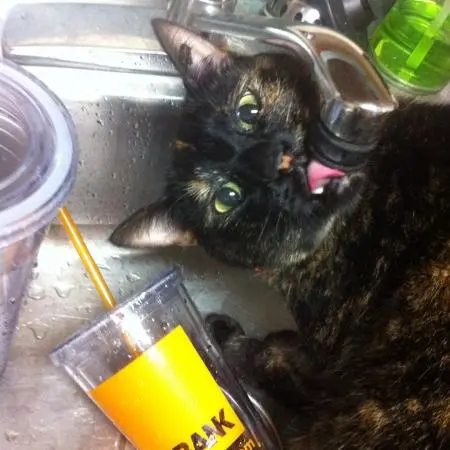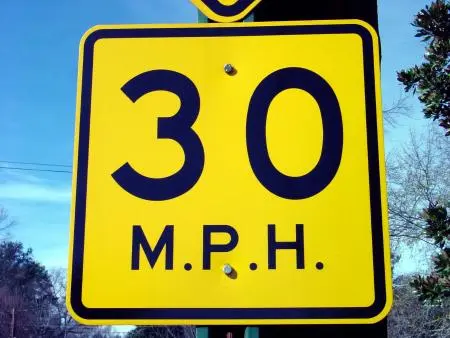I work at two places that accept donations of used books: a library and a bookstore that serves as a front for a non-profit. Okay, the bookstore funds the non-profit. It’s not a “front.” But “front” sounds more crime-y and thrilling.
When spring rolls around, both places are inundated with book donations. Especially now that we’ve all learned the life-saving magic of throwing away a bunch of our bullshit. (Thanks a lot, Marie Kondo. I’ll curse your name as I succumb to the sentient pile of dust mites that comes in with the 150th box of books from someone’s attic).
Donating books is a great thing to do. Most of the time.
The thing is, it can be a big help, it can make your space more calming, but you can also create more work for an organization you set out to help. If you donate books without taking a couple steps first, you can do more harm than good. Which is sort of fun in its own way, and if you wanted to be the Joker, the “let the world burn” person of your local library, I guess this is a relatively good option.
But if you really want to tidy up your life while also benefiting a local organization, here are some steps.
Do No Harm
Most of what’s here is not to be judgmental. It’s about advising you how to not hurt the organization you’re trying to help.
Harm comes to those who accept book donations in two primary ways.
First, books that cause physical damage to other books because they are physically damaged. On that note, let me tell you what you can go ahead and throw away right now.
Anything water-damaged. That includes anything that’s moldy or has visible water damage, even if there’s no mold you can see. Water is the enemy, and even old water damage can spread molds that ruin other books and even cause sickness! Do you want to be responsible for the death of the sweet old lady who works at your library? Or the death of the strapping younger gentleman who is in generally good health but also does not want to die?
Anything you’ve smoked around. If you smoke inside your house, no offense, no judgment, but I would prefer that you keep or dispose of your books. Your books are going to make other books smell like old cigarettes, making more of the inventory more difficult to move. If you’re not sure if your books smell, ask a friend who is a good enough friend to tell you the truth.
Cat Stuff. If you have cats, and if I can tell you have cats by the smell of your books, I do not want them. I love cats. I love A cat, anyway. Here’s her picture:

This is me giving her water in the sink, which she’s totally not supposed to have. This is to prove to you that I love cats and it’s not about me not loving cats. It’s about what I can sell, and it’s about what I can shelve without wrecking more inventory.
Don’t Waste Someone’s Time
The second way organizations are harmed by donated books is through wasted time. Donations that are not of use are a waste of an organization’s time and resources. And A LOT of the donations we get are not of use.
I know what you’re thinking, “But going through and figuring out what's good, that’s your job!”
Which is the same line of thinking that lets people leave their empty popcorn buckets in the movie theater on the floor. Is someone paid to sweep? Sure. Does that mean you should make their job more difficult? No way! That’s like hiring a dog walker and then making sure your dog doesn’t walk AT ALL until the dog walker shows up, just to make sure you’re getting the most for your money.
By the way, if you go on a movie date with someone, and if that date leaves their popcorn bucket on the theater floor, run. Or, play Time Crisis in the movie theater arcade, show your date what’s up, and THEN run.
Start By Sorting
Look at your pile of books and decide what you don’t want anymore. Make good decisions. And handle the books. Not to see if they spark joy, just to see if they spark the feeling of, “Wait, this book belongs to my kid’s school library!”
Because once you donate it, it’s gone.
I’ve seen lots of what I call “death donations” come through in my time. Donations that seem to belong to a recently deceased relative. And sometimes, when I go through those donations, I find things like photo albums. Yearbooks. Handwritten recipe cards. Things that I feel like the donor may have wanted.
Take the time to go through everything.
Things We Just Don’t Want
You might come across the rare organization that takes the items I'm about to list, probably because they’re going to mangle them for an art project or make little cutouts to hide pistols or nail files to help people break out of jail. If you support nail-file-based jailbreaks, more power to you. But for the most part, you can just keep this stuff:
We do not want Reader's Digest Condensed Editions.
We do not want old encyclopedia sets. “Old” meaning more than 5 years old.
We do not want old textbooks. If your college bookstore wouldn’t pay you anything for them, we don’t want them either.
We do not want old National Geographic magazines.
We do not want your bootleg copies of audiobooks. You’d be surprised how many of these we get and how few of them are Patrick DeWitt books.
We do not want Wild Animus.
Ask Yourself The Right Questions
Once you’ve got your pile down to the stuff you want to get rid of, and now that you’ve removed some real problem children (OH! We don’t want copies of Problem Child either), ask yourself the right question.
The right question is not “Can I conjure, in my mind, an imaginary person who might want these?” Sure, there is, in the world of pure imagination, a historian who is researching the way textbooks taught traditional and modern grammars in the late 20th century. Congratulations for conjuring her. You guys should date. She seems fascinating.
The right question is not “Can I get away with dropping these off?” At one of my locations, we have a regular who drops boxes of books at the front door, waves, and takes off. I have no idea why he has all these books he’s unloading, but every time I wish I could catch him, stop him, and tell him that he can use our book recycling bin. Just stop leaving junk at the front door.
The right question is “Would someone pay $5 for these?”
If you can answer yes to that last question, we’re good.
Call And Ask Before You Donate
Donation policies are like speed limits. Not knowing the speed limit in a particular area doesn’t get you out of a ticket.
Likewise, being purposefully unaware of the donation policies at various spots doesn’t mean you shouldn’t try and find out.
Some places take certain things, and some don’t. Some places will take mass market paperbacks, some won’t. Some haven’t shoveled their share of Problem Child DVD’s, and some have wept at the waste of plastic and non-biodegradable materials used to commit that movie to disc.
Vessels
If you can, bringing your donations in a vessel you don’t need to take back with you can be a big help. Sometimes the recipient appreciates the ability to go through the books at a later time. However, keep in mind that the above rules apply. Don’t bring me a box you used to store your cat pee jars.
Great. Now I Can’t Donate Anything
It’s okay. Believe me, you’re better off.
Figure out where you can recycle your stuff instead.
I know there’s a sacredness to books for most of us, but believe me, we will be able to move forward without your copy of Windows NT for Dummies.
And the dirty secret here is that if you bring in the above items, they’re going to be recycled anyway.
Part of the purpose behind tidying is to come to grips with the fact that some things are ephemeral. Things in your life, things about your life, and even you, friend, are ephemeral. Part of the peace that comes with getting rid of old items is the act brings you closer to the acceptance that, one day, you'll have to let go of your own life.
Don't cheapen that experience by forcing someone else to do the dirty work. If something needs to be tossed, have the guts to do the tossing yourself.

About the author
Peter Derk lives, writes, and works in Colorado. Buy him a drink and he'll talk books all day. Buy him two and he'll be happy to tell you about the horrors of being responsible for a public restroom.









